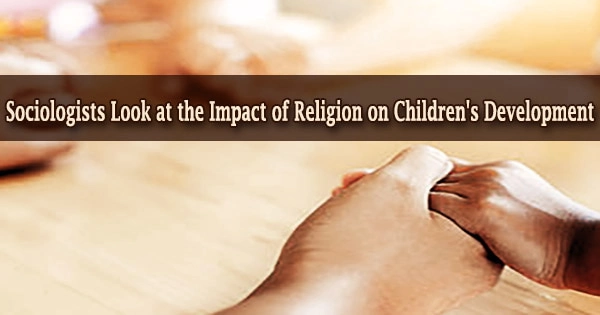Do children raised in religious houses develop socially and psychologically better than children raised in non-religious homes? According to a recent study, religion might be a mixed blessing for youngsters as they grow older.
The Alamo Colleges District’s Office of Institutional Research and Effectiveness Services recently published an article titled “Mixed Blessing: The Beneficial and Detrimental Effects of Religion on Child Development among Third-Graders” by John Bartkowski, professor of sociology at The University of Texas at San Antonio (UTSA), Xiaohe Xu, professor of sociology at UTSA and chair of the Department of Sociology, and Stephen Bartkowski, from the Office of
To complete the study, the researchers used data from the Early Childhood Longitudinal Study (ECLS)-Kindergarten Cohort. They looked studied how a nationally representative sample of third-graders were impacted by their parents’ religious attendance and the religious atmosphere in the home (frequency of parent-child religious dialogues and spousal disputes over religion). They looked at the kids’ psychological adjustment, interpersonal skills, problem behaviors, and standardized test results (reading, math, and science).
Religion emphasizes moral codes designed to instill values such as self-control and social competence.
John Bartkowski
They discovered that several religious characteristics were positively connected with third-graders’ psychological adjustment and social competence. However, various types of parental religiosity were shown to be inversely related with children’s performance on reading, math, and science assessments.
The findings imply that parental religion is a mixed blessing, as it promotes social-psychological development in third-graders while also threatening academic achievement, notably in math and science.
“Religion emphasizes moral codes designed to instill values such as self-control and social competence,” said Bartkowski.
“Religious groups’ prioritization of these soft skills may come at the expense of academic performance, which is generally diminished for youngsters raised in religious homes when compared with their non-religious peers.”
This study expands on the findings of a prior investigation by Bartkowski and colleagues. That research, which was published in 2008, was the first to use national data to examine the influence of religion on infant development. Religion was linked to improved psychological adjustment and social competence in primary school-aged children, according to the findings (kindergartners).
Religious unity among couples and communication between parent and child were also associated to beneficial development traits, but religious conflict among spouses was linked to bad results, according to Bartkowski.
According to Bartkowski, there are various paths to well-rounded growth, and religion is just one of them. “If it takes a village to raise a child, religion occupies an important place in that village. But it certainly doesn’t have a corner on fostering positive developmental trajectories for children. In fact, religion may be best paired with other community resources such as academically oriented school clubs and activities,” he concluded.
Bartkowski also highlighted one notable limitation in their recently published study.
“Some religious groups may more effectively balance soft skill development and academic excellence than others. Regrettably, our data set does not inquire about denominational affiliation, so we cannot say if children from Catholic, Protestant, Mormon, Muslim, or other denominational backgrounds are especially likely to strike the delicate balance between social-psychological development and academic excellence,” Bartkowski explained.
He believes that further study is needed to see if some religious groups are better at balancing interpersonal and intellectual skills development.
According to Bartkowski, a crucial lesson from this new study is that religion has a significant impact on children as they negotiate their way through elementary school, both for good and for evil.
















